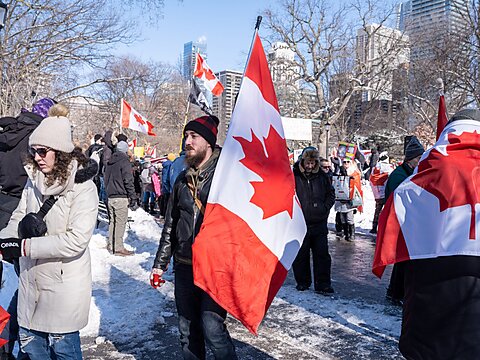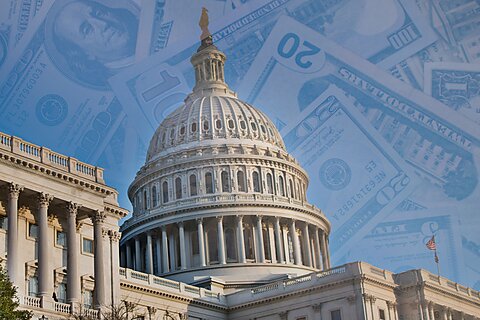
Today (February 14) marks the two‐year anniversary of Prime Minister Justin Trudeau’s decision to invoke the Emergencies Act for the first time in Canadian history. The decision was made in order to shut down the Freedom Convoy—a protest organized against government overreach during the COVID-19 pandemic.
At the time, my Cato colleagues Norbert Michel, Walter Olson, and I spoke out against the decision because it marked both an attack on freedom in the current financial system and a cautionary tale of what might happen with central bank digital currency (CBDC) in the future. Yet, looking back, there are even more reasons to oppose Prime Minister Trudeau’s use of the Emergencies Act.
Three Strikes
Although it was largely the Emergencies Act that drew international criticism, the Canadian government tightened its hold on the financial system long before Prime Minister Trudeau’s official announcement. In fact, the experience highlights all too well the extent to which governments can readily pressure and control the financial system with existing tools.
The first strike came on February 2, 2022, shortly after GoFundMe—the primary platform for official donations to the Freedom Convoy—paused all donations to review the protest and make sure the organizers were not violating the platform’s terms of service. The Canadian House of Commons Committee on Public Safety and National Security quickly voted unanimously to have GoFundMe testify before it to “ensure the funds are not being used to promote extremism, white supremacy, anti‐Semitism and other forms of hate, which have been expressed among prominent organizers for the truck convoy currently in Ottawa.”
With both the Canadian House of Commons and law enforcement crowding around it, GoFundMe announced the next day that it removed the donation page for the protest and froze the accounts following “evidence from law enforcement that the previously peaceful demonstration has become an occupation, with police reports of violence and other unlawful activity.”
The second strike came on February 10, 2022, when the Ontario Superior Court of Justice granted a request from the provincial government to freeze millions of dollars raised on GiveSendGo (the platform chosen after GoFundMe could no longer be used). The decision marked a clear escalation of the government’s response. However, many protestors remained undeterred.
The third, and final, strike came on February 14, 2022, when Prime Minister Trudeau announced that he had invoked the Emergencies Act for the first time since the Act was passed in 1988 and thus authorized the government to take extraordinary measures to respond to the protesters that remained on the streets.
Deputy Prime Minister and Finance Minister Chrystia Freeland explained that the financial activity of protestors could be frozen without a court order:
In invoking the Emergencies Act, we are … broadening the scope of Canada’s anti‐money laundering and terrorist financing rules so that they cover crowdfunding platforms and the payments service providers they use. These changes cover all forms of transactions––including digital assets such as cryptocurrencies… As of today, a bank or other financial service provider will be able to immediately freeze or suspend an account without a court order.
Taken together, the experience illustrates how governments will use pressure, court orders, and sweeping authorities to use the financial system as a means of control.
A Decision Without Cause
Yet it’s not just the escalating measures that warrant concern. There’s still the question of whether the government was justified in invoking these emergency powers in the first place.
Back in 2022, the Canadian Civil Liberties Association objected to the use of the Emergencies Act saying,
The federal government has not met the threshold necessary to invoke the Emergencies Act. This law creates a high and clear standard for good reason: the Act allows government to bypass ordinary democratic processes. This standard has not been met.
Today, the courts seem to agree. On January 23, 2024, a federal judge concluded that “there was no national emergency justifying the invocation of the Emergencies Act and the decision to do so was therefore unreasonable and ultra vires.” (The Canadian government announced that it will appeal the decision.)
Conclusion
Prior to Prime Minister Trudeau’s decision, freezing the bank accounts of protestors had been a strategy only used by authoritarian regimes, not one of the freest nations in the world. As Walter Olson warned at the time, the decision underscores “how dangerous it is to arm the government with the kind of financial and emergency powers that can bypass due process, bring targets to their knees through economic incapacitation without trial, and shred privacy.”
Whether you agree with the protestors or not, moments like these should be a wake‐up call for how quickly governments can amass and enforce sweeping powers that can stop people in their tracks.



